Introduction
Welcome to our comprehensive guide on crafting a standout video game development portfolio. In today’s competitive landscape, a well-curated video game development portfolio is essential for aspiring game developers to showcase their talents, expertise, and unique creative vision. Whether you’re a seasoned professional or just starting your journey in the industry, your video game development portfolio serves as your digital storefront, offering potential employers and collaborators a glimpse into your skills and capabilities. In this article, we’ll explore the key steps and strategies to help you create a compelling video game development portfolio that not only highlights your accomplishments but also effectively communicates your passion for game development. So, let’s dive in and learn how to elevate your Video Game Development Portfolio to new heights.
Understanding the Importance of a Portfolio
A portfolio serves as a visual representation of your skills, creativity, and expertise in video game development. It allows you to demonstrate your proficiency in various areas such as game design, programming, art, animation, sound design, and more. A well-curated portfolio not only showcases your past work but also demonstrates your potential for future projects. Employers and clients often rely on portfolios to assess the capabilities of candidates and make hiring decisions, making it a crucial tool for advancing your career in the industry.
Choosing the Right Platforms
When it comes to building a portfolio for video game development, selecting the right platforms to showcase your work is essential. Several websites and platforms cater specifically to creative professionals, offering features tailored to display multimedia content effectively. Some of the most popular platforms include:
- ArtStation / DevianArt: Ideal for artists, 3D modelers, animators, and concept artists to showcase their visual work.
- GitHub / Bitbucket: Essential for programmers and developers to share code repositories and collaborative projects.
- Behance: Great for showcasing design work, UI/UX design, and graphic assets related to game development.
- Dribbble: Focuses on design and creativity, perfect for displaying visual design, interface design, and motion graphics.
- SoundCloud: For sound designers and composers to showcase their audio work, including music, sound effects, and voice acting.
Creating a Cohesive Portfolio
When building your portfolio, it’s important to maintain a cohesive theme and narrative that reflects your personal style and expertise. Consider the following tips:
- Curate Your Best Work: Select a diverse range of projects that highlight your skills and versatility. Choose pieces that demonstrate your ability to work on different genres, styles, and platforms.
- Organize Content Effectively: Arrange your portfolio in a logical order, starting with your strongest pieces. Use categories or tags to group similar projects together for easy navigation.
- Provide Context: Accompany each project with a brief description that explains your role, the tools used, and any challenges or accomplishments during the development process.
- Showcase Process Work: Include sketches, concept art, wireframes, prototypes, or code snippets to demonstrate your creative process and problem-solving skills.
- Update Regularly: Keep your portfolio up-to-date with your latest work and achievements. Remove outdated or irrelevant projects to maintain a polished and relevant portfolio.
Leveraging Social Media and Networking
In addition to dedicated portfolio platforms, social media can also be a powerful tool for showcasing your work and connecting with industry professionals. Consider the following strategies:
- LinkedIn: Create a professional profile on LinkedIn and regularly update it with your latest projects, skills, and achievements. Join relevant groups and engage with other professionals in the industry.
- Twitter: Share snippets of your work, insights, and industry news on Twitter using relevant hashtags to increase visibility and engagement.
- Discord: Join game development communities and Discord servers related to your areas of expertise. Participate in discussions, share your work, and network with other developers and enthusiasts.
- Attend Events and Conferences: Attend industry events, game jams, and conferences to network with professionals, showcase your portfolio, and learn about the latest trends and opportunities in the industry.

Best Online Education Platforms to Learn How to Create a Video Game Development Portfolio
In the dynamic and ever-evolving world of video game development, acquiring the right skills and crafting an outstanding portfolio are crucial steps towards a successful career. Online education platforms offer a wealth of resources, courses, and expert guidance to help aspiring developers navigate this path. In this article, we’ll explore the top platforms where you can learn how to build a portfolio for a career in video game development, covering the essential websites and strategies for success.
Udemy
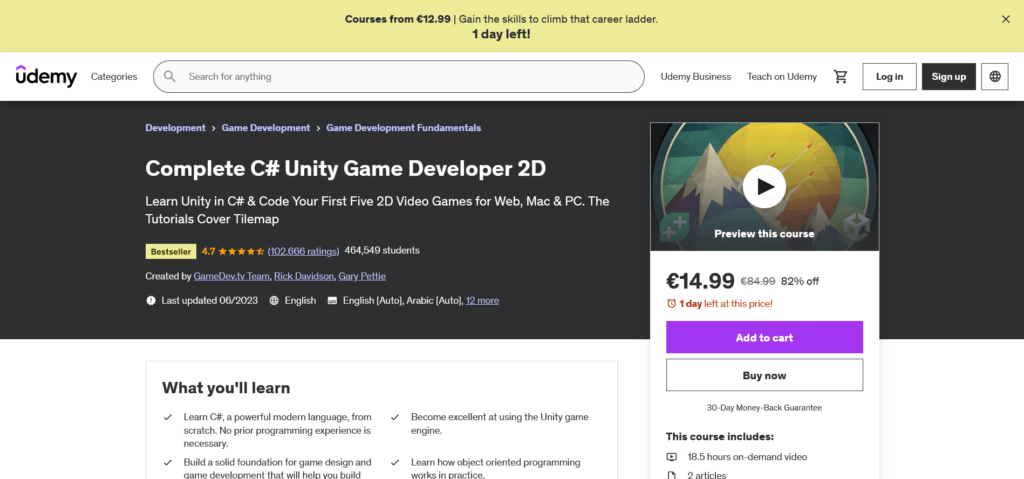
Udemy is a versatile platform offering a plethora of video game development courses. From programming and design to animation and sound engineering, Udemy provides a diverse range of courses suitable for beginners to advanced learners. Instructors often share insights on portfolio creation, ensuring students are well-equipped for their career journey.
Coursera
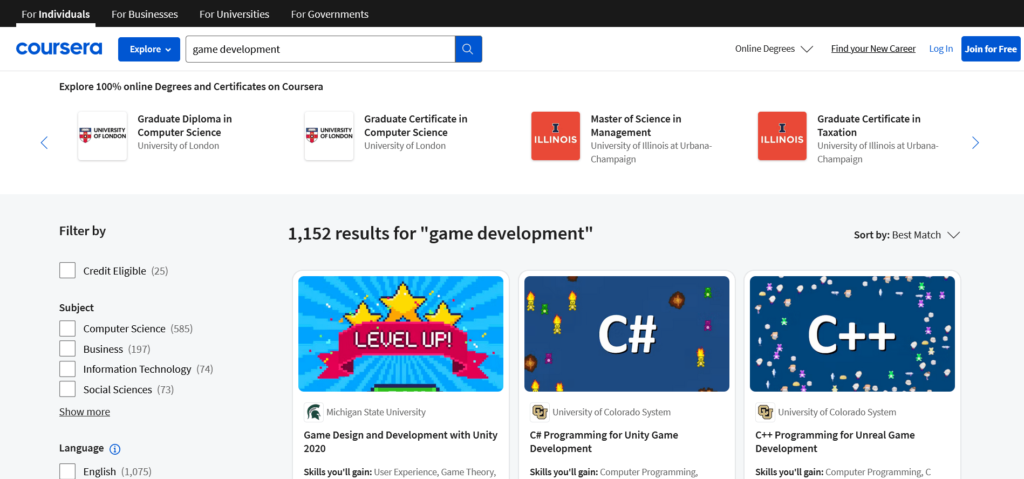
Collaborating with renowned universities and industry professionals, Coursera provides specialized courses in video game development. Learners can access expert-led content, gaining valuable knowledge on portfolio building. Interactive assignments and peer reviews contribute to a well-rounded learning experience.
LinkedIn Learning
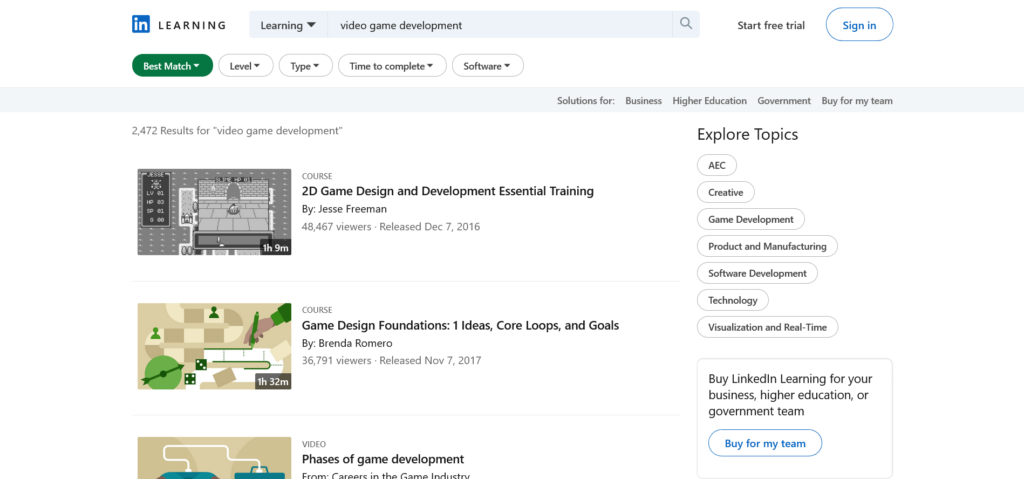
Formerly known as Lynda.com, LinkedIn Learning offers courses tailored for video game development professionals. These courses not only cover technical aspects but also emphasize soft skills crucial for success in the industry. LinkedIn Learning’s integration with the LinkedIn platform facilitates seamless networking and job opportunities.
Pluralsight
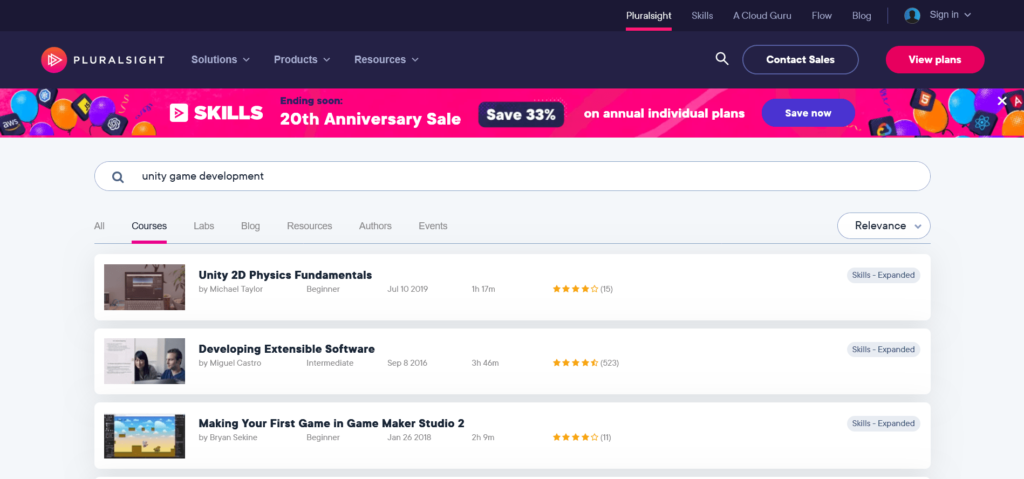
Focused on technical skills, Pluralsight is an excellent choice for those looking to enhance their programming and development capabilities. With a vast library of courses, including video game development, Pluralsight provides hands-on training, helping learners acquire the skills needed to create an impressive portfolio.
Skillshare
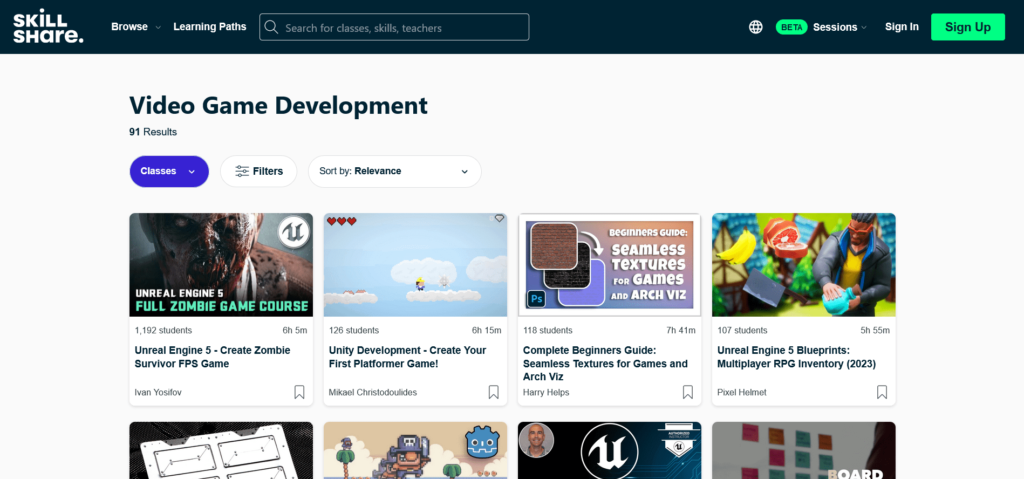
Skillshare emphasizes project-based learning, making it an ideal platform for video game development enthusiasts. Courses often include practical assignments that contribute directly to portfolio creation. Skillshare’s community features enable networking and collaboration with fellow learners.
Codecademy
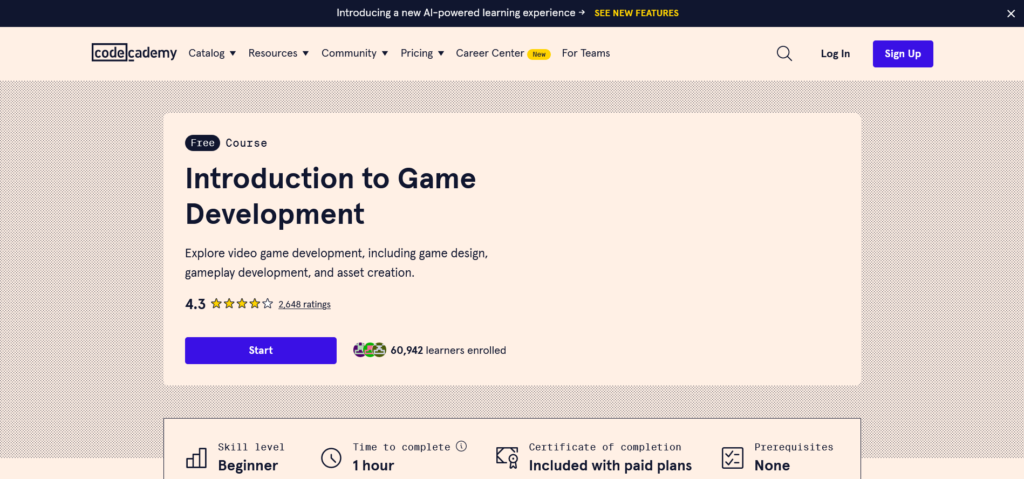
Codecademy’s interactive coding lessons are an excellent resource for aspiring developers looking to strengthen their programming skills. With specific tracks on languages like Python and JavaScript, learners can acquire the coding proficiency necessary for a successful career in game development.
FutureLearn
FutureLearn collaborates with universities and industry professionals to deliver comprehensive courses in video game development. The platform’s social learning approach encourages collaboration, enabling learners to connect with peers and mentors to enhance their skills and build impressive portfolios.
Top 10 Questions and Answers About How to Create a Video Game Development Portfolio
1. What are the essential elements of a video game development portfolio?
A compelling portfolio should showcase a variety of projects, including game design, programming, art, animation, and sound design. Include detailed project descriptions, your role in each, and highlight your problem-solving skills and creativity.
2. Which websites are best for hosting a video game development portfolio?
Popular platforms like ArtStation, GitHub/Bitbucket, Behance, Dribbble, and SoundCloud cater specifically to different aspects of game development, providing tailored features for artists, programmers, designers, and sound engineers.
3. How should I organize my video game development portfolio for maximum impact?
Organize your portfolio logically, starting with your strongest work. Use categories or tags to group similar projects together, providing an easy-to-navigate structure for potential employers or clients.
4. What kind of content should I include in my video game development portfolio?
Besides showcasing finished projects, include process work such as sketches, concept art, wireframes, prototypes, or code snippets. This adds depth to your portfolio and offers insight into your creative process.
5. Is it important to update my video game development portfolio regularly?
Yes, regular updates are crucial. Keep your portfolio current with your latest projects, skills, and achievements. Removing outdated or irrelevant work ensures your portfolio remains polished and relevant.
6. How do I create a cohesive theme for my video game development portfolio?
Maintain a consistent theme that reflects your personal style and expertise. Choose projects that align with your career goals and showcase a diverse range of skills to highlight your versatility.
7. Can social media enhance the visibility of my video game development portfolio?
Absolutely. Utilize platforms like LinkedIn, Twitter, and Discord to share snippets of your work, engage with professionals, and join relevant communities to expand your network and increase visibility.
8. What role does LinkedIn play in promoting a video game development portfolio?
LinkedIn is a powerful tool for professionals. Create a professional profile, regularly update it with your latest work and achievements, join industry groups, and connect with other professionals to enhance your online presence.
9. How can I effectively use Twitter for promoting my video game development portfolio?
Share visually appealing snippets of your work on Twitter, use relevant hashtags, and actively engage with the gaming community. This not only boosts visibility but also establishes you as an active and passionate contributor to the industry.
10. Are industry events and conferences beneficial for promoting a video game development portfolio?
Yes, attending events, game jams, and conferences allows you to network with industry professionals, showcase your portfolio, and stay updated on the latest trends and opportunities in the dynamic field of video game development.
Building a stellar portfolio for a career in video game development involves a strategic combination of platform selection, content curation, and effective networking. By addressing these top 10 questions, aspiring developers can navigate the complexities of portfolio creation, ensuring they stand out in the competitive world of game development and open doors to exciting career opportunities.
Conclusion
In conclusion, crafting a compelling video game development portfolio is not just about showcasing your skills and projects, but about effectively communicating your passion and expertise to potential employers or clients. By following the strategies outlined in this article, you can create a video game development portfolio that stands out in a competitive industry. Remember, your video game development portfolio is your digital calling card, your opportunity to leave a lasting impression on recruiters and collaborators alike. With careful attention to detail, organization, and presentation, your video game development portfolio can become a powerful tool for advancing your career in the dynamic world of game development. So, invest the time and effort into perfecting your Video Game Development Portfolio, and watch as opportunities unfold in this exciting field.














